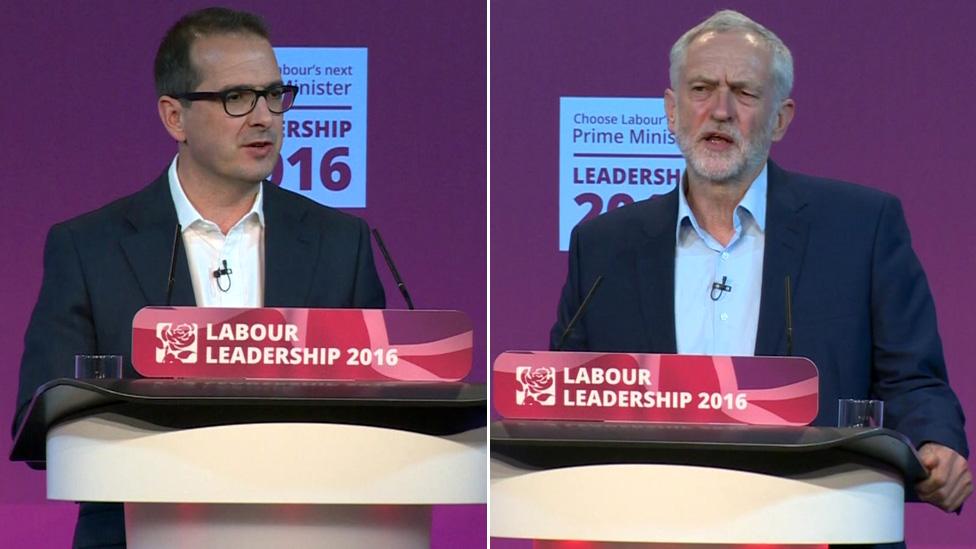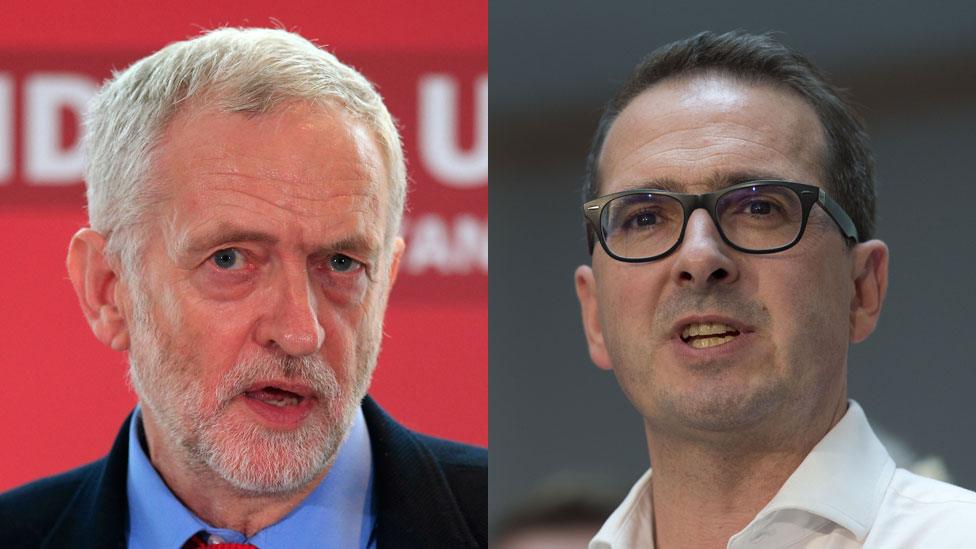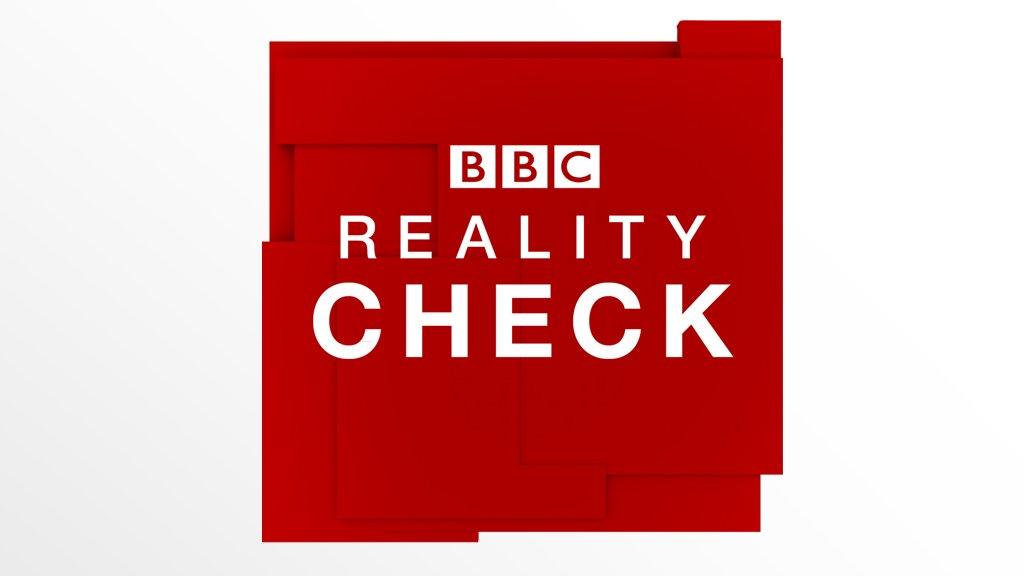Reality Check: Has Labour been ahead in the polls?
- Published
![Jeremy Corbyn saying: [We] were indeed ahead of the polls until such time as a number of people decided to have a leadership election instead.](https://ichef.bbci.co.uk/ace/standard/976/cpsprodpb/5C18/production/_90767532_corbyn_polls_quote.gif)
The claim: Labour was ahead in the polls before the leadership process started.
Reality Check verdict: Labour has been ahead in only three of the 75 polls conducted between Mr Corbyn becoming leader and 23 June.
At the Labour leadership hustings in Gateshead on Thursday, Jeremy Corbyn and Owen Smith were discussing Labour's electability.
"Over the past year we have won the by-elections we contested, three with a big swing to Labour, we got ahead of the Tories in the local government election, we won four mayoral contests and were indeed ahead of [sic] the polls until such time as a number of people decided to have a leadership contest instead," Mr Corbyn said.
Let's take a look at those claims in turn.
There have been four by-elections since the last general election, all of them in seats that were previously held by Labour. The swings to Labour were 7%, 6%, -1% and 9%.
In the first four by-elections of the last parliament, three of the swings to Labour were in double figures, so the swings are smaller than they were five years ago, but not a huge amount smaller.
Labour remained ahead of the Conservatives in the local government elections in England in 2016 with 1,326 council seats compared with the Tories' 842 seats.
There was some criticism of Labour's performance because they ended up with 18 fewer seats than they had the last time these councils were contested in 2012, although the party had been expected to lose many more seats.
It was nonetheless the first time outside a general election year since 1985 that the main opposition party had lost seats in the annual council elections.
So, while Mr Corbyn's assertion is accurate it does not tell the full story.
Labour has indeed won the four mayoral contests in the past year: in London, Bristol, Salford and Liverpool.
The London mayor was a gain from the Tories, in Bristol Labour's candidate defeated an independent incumbent, while Salford and Liverpool were both Labour holds.
Finally, Mr Corbyn said that Labour had been ahead in the polls until "people decided to have a leadership election".
It would be reasonable to take that point as the day of the EU referendum, because it was after that that the moves began for the vote of no confidence and the leadership challenges. Between 12 September when Mr Corbyn became leader and 23 June there have been 75 voting intention polls carried out, external.
Of those, Labour has been ahead in three, all conducted in March and April by YouGov.
But looking at an average of the polls, the Conservatives have been ahead since the 2015 general election.
Correction 27 April 2017: This article has been amended to clarify that the time period of polling under examination ran until the day of the EU referendum on 23 June 2016, rather to the end of that month.



- Published12 August 2016

- Published21 September 2016

- Published2 August 2016

- Published22 February 2016
